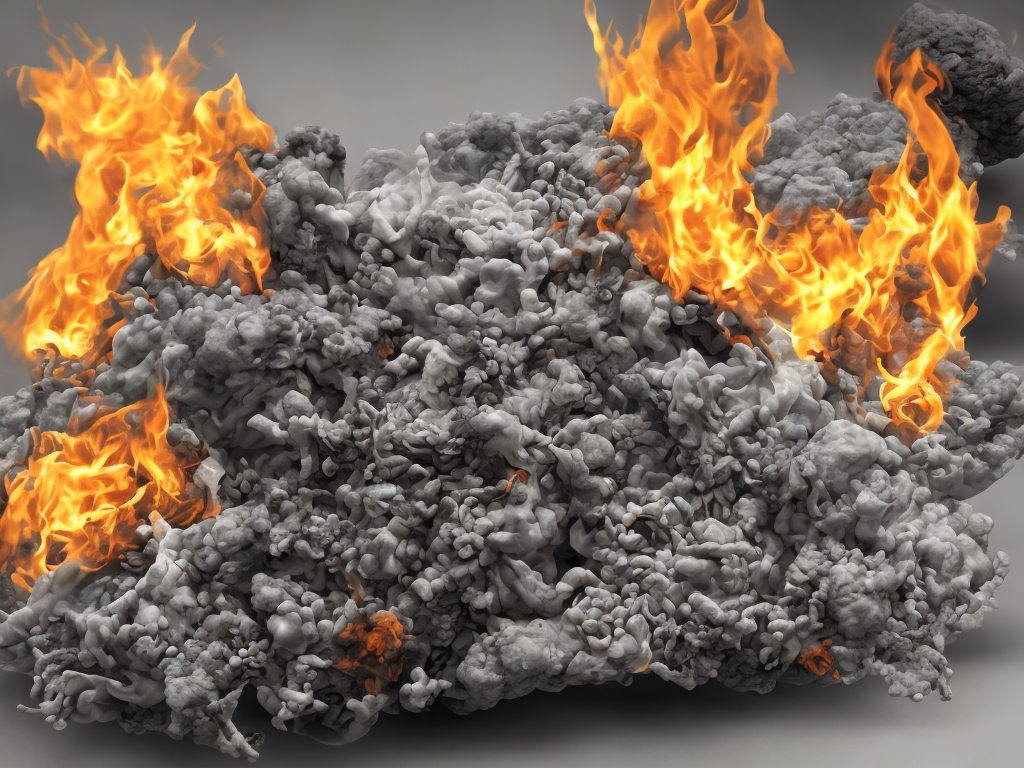
Respiration and combustion are two distinct processes that involve the release of energy from organic molecules. While both processes involve the breakdown of chemical bonds and the release of energy, there are fundamental differences between them in terms of the molecules involved, the conditions required, and the end products formed. This article aims to explain the difference between respiration and combustion comprehensively.
To begin with, let's define respiration and combustion individually. Respiration is a biological process that takes place in living organisms, including both plants and animals. It is an essential metabolic process that converts glucose and oxygen into carbon dioxide, water, and energy in the form of ATP (adenosine triphosphate). On the other hand, combustion is a chemical process that occurs in the presence of oxygen and involves the rapid oxidation of a fuel, such as hydrocarbons, to produce carbon dioxide, water, and heat.
One of the key differences between respiration and combustion lies in the reactants involved. Respiration primarily utilizes glucose (a sugar) and oxygen as reactants. Glucose is broken down into smaller molecules through a series of enzymatic reactions in the cells. The presence of oxygen is crucial in respiration, as it acts as the final electron acceptor in the electron transport chain, allowing for the production of ATP. The balanced equation for cellular respiration is C₆H₁₂O₆ + 6O₂ → 6CO₂ + 6H₂O + energy (ATP).
In contrast, combustion typically involves the oxidation of hydrocarbons (carbon-based compounds) in the presence of oxygen. Hydrocarbons, such as methane (CH₄), propane (C₃H₈), and octane (C₈H₁₈), are commonly found in fossil fuels. During combustion, the hydrocarbons react with oxygen, producing carbon dioxide (CO₂), water (H₂O), and heat. The balanced equation for complete combustion can be represented as C₈H₁₈ + 12.5O₂ → 8CO₂ + 9H₂O + heat.
Another notable difference between respiration and combustion is the regulation and control of the reactions. In respiration, the breakdown of glucose occurs in a controlled manner within the cells, and the energy released is stored in the form of ATP. This enables living organisms to utilize the energy as needed for various cellular processes, such as muscle contraction, active transport, and protein synthesis. In contrast, combustion is an uncontrolled reaction that occurs spontaneously when the correct conditions are met. Once combustion starts, it sustains itself until the fuel is exhausted or oxygen becomes limited.
The conditions required for respiration and combustion also differ significantly. Respiration occurs at relatively lower temperatures and in a controlled environment within living organisms. It occurs at a cellular level, primarily in mitochondria, where enzymes are present to facilitate the reactions. In contrast, combustion requires high temperatures, typically ranging from a few hundred to several thousand degrees Celsius. This is because combustion is an exothermic reaction, meaning it releases heat. The presence of a spark, flame, or even a sufficiently high temperature is necessary to initiate combustion.
Moreover, the quantities and properties of the end products also distinguish respiration from combustion. In respiration, one molecule of glucose is broken down into six molecules of carbon dioxide and six molecules of water. Along with the production of ATP, respiration also releases heat, but to a lesser extent compared to combustion. The end products of respiration, carbon dioxide and water, are continuously removed from the cells through exhalation and waste elimination processes.
In combustion, the end products are carbon dioxide, water, and heat. Unlike respiration, combustion releases a much larger amount of heat due to the rapid oxidation of the fuel. If combustion is incomplete, it may result in the production of toxic gases, such as carbon monoxide, nitrogen oxides, and particulate matter. This is particularly true in the case of incomplete combustion of fossil fuels, which contribute to air pollution and negatively impact the environment.
In conclusion, respiration and combustion are two distinct processes involving the release of energy from organic molecules. Respiration is a biological process that occurs in living organisms and produces ATP through the controlled breakdown of glucose in the presence of oxygen. Combustion, on the other hand, is a chemical process that occurs when a fuel reacts with oxygen, resulting in the release of heat, carbon dioxide, and water. The reactants, conditions, regulation, and end products differ significantly between respiration and combustion. Understanding these differences is crucial to grasp their roles in both biological systems and energy production.
 Self-Instruct
Self-Instruct